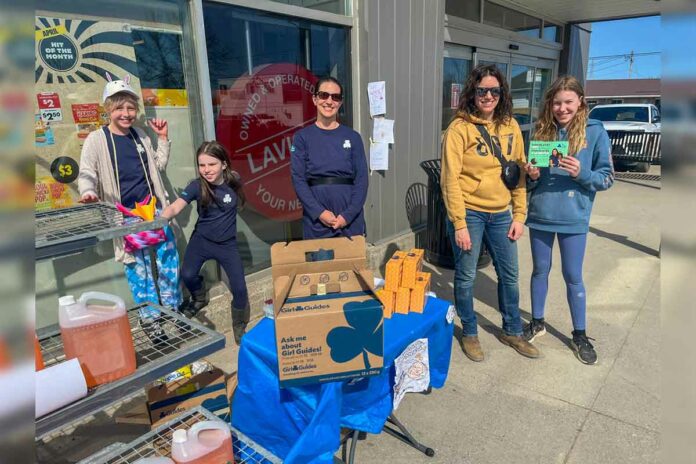MANITOULIN — A quiet move by the federal government to end travel support for Canadian scientists contributing to the Intergovernmental Panel on Climate Change (IPCC) has raised alarm bells across the country — but for Kim Neale of Manitoulin Island, the consequences hit even closer to home.
Ms. Neale is an environmental engineer with specialties in ecological economics and conservation finance who currently works as vice president of Resilient Habitats at WWF-Canada and partners with several national Indigenous organizations. “I’m checking in with some of them to ensure their funding hasn’t been cut too.”
The federal government’s decision to withdraw funding — which historically covered flights, accommodations, and meals for Canadian scientists volunteering their time to the IPCC — effectively places a financial barrier between Canadian experts and the world’s leading climate science process. The implications are steep. With IPCC participation requiring four to five international meetings per cycle, scientists now face the prospect of paying out of pocket or diverting grant funding intended for research and students.
But Ms. Neale says the policy shift threatens more than scientific collaboration. It jeopardizes the inclusion of Indigenous knowledge keepers and community voices in climate policy at the highest levels.
“I know several Indigenous scholars, practitioners and knowledge keepers who’ve been invited to participate in IPCC assessments but had to decline because of financial barriers,” she said. “Even when travel was covered, the work goes far beyond attendance. Indigenous participants often spend more time than their peers, because our representation in these forums is still so limited.”
Canada, which is warming at nearly twice the global average, is experiencing the impacts of climate change acutely — from devastating wildfires and across the North to melting permafrost and rising coastlines. Yet decisions about how to respond are increasingly made without the people who live on and steward these lands.
“These IPCC assessments influence everything from international climate finance to local land use policies,” said Ms. Neale. “When local leaders and Indigenous experts are sidelined due to financial barriers, the resulting policy often fails to reflect what’s actually needed to protect our lands and waters.”
The shift arrives at a time when global climate leadership is under scrutiny. While the government previously spent $424,000 over the last IPCC cycle—much of it during the pandemic when travel was restricted—a new statement from Environment and Climate Change Canada confirms the department is “not able to commit to providing long-term travel funding for academics.”
York University professor Dr. Deborah McGregor, a leader in Indigenous environmental justice, echoed that concern. “Ten years ago, I couldn’t have participated,” she said. “I wouldn’t have had the funds.”
Dr. McGregor—who has served on national and international climate committees—pointed out that many Indigenous academics work in underfunded disciplines like the humanities or traditional ecological knowledge, where travel budgets are scarce and workloads are already heavy. Even for those who are invited, the lack of financial support creates a two-tier system of access.
“These IPCC assessments influence everything from international climate finance to local land-use policies,” Ms. Neale added. “When local leaders and Indigenous experts are sidelined due to financial barriers, the resulting policy often fails to reflect what’s actually needed to protect our lands and waters.”
Dr. McGregor agrees and has long advocated for the meaningful inclusion of Indigenous governance and knowledge systems in climate policy. “When Indigenous voices are absent from these global processes, the policies that follow often reproduce the same colonial dynamics that got us into this crisis,” she said.
For Ms. Neale, this moment is a call to action — and a reminder of where real support comes from.
“This is why I support organizations that raise funds for Indigenous and local leaders to be at these ‘expert’ tables,” she said. “Because too often, those tables are filled with well-funded academics, not people with lived experience.”
In the absence of federal commitment, advocates are turning to grassroots networks, foundations, and coalitions to fill the gap. But the question remains: If the Canadian government won’t back its own experts — especially those closest to the climate crisis — who will?






